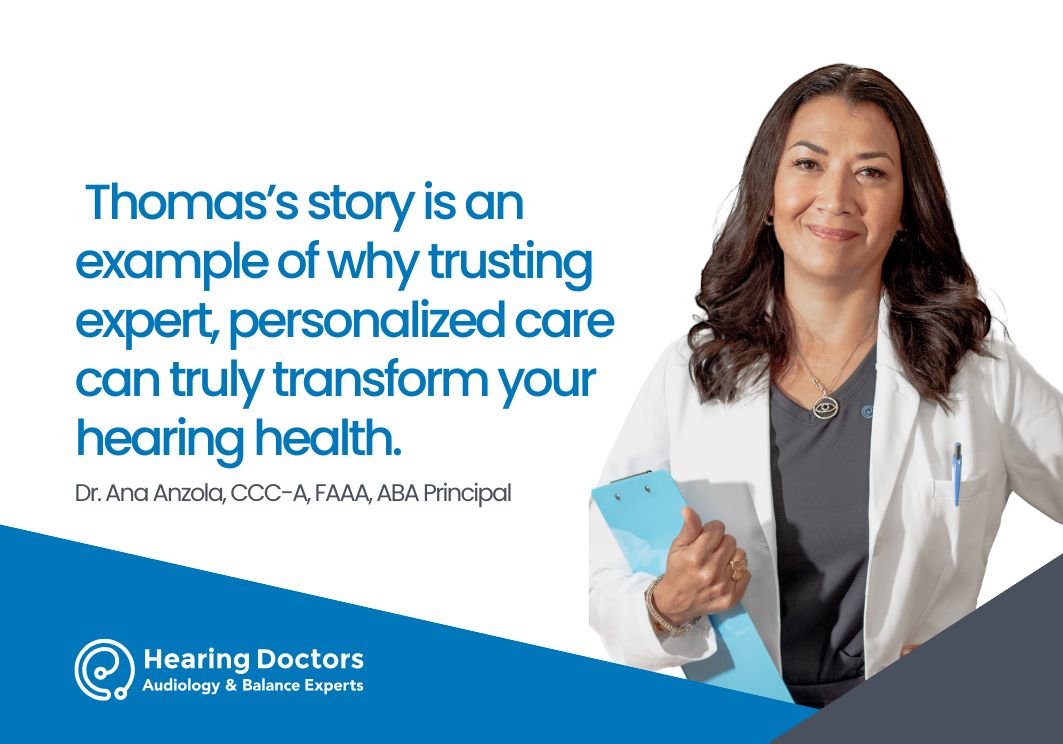Jan 12, 2017
Dr. Ana
Anzola, CCC-A, FAAA, ABA Principal
Our patient, Jane*, is a teenager with normal hearing, who struggles to differentiate words in noisy backgrounds. She prefers watching TV with closed captions, and has struggled in school due to her condition.
Brain Unable To Process Sound Meaning
It is suspected that Jane suffers from auditory agnosia, sometimes called “word deafness,”which is an inability to recognize or differentiate between sounds. The condition is usually the result of a neurological inability of the brain to process sound meaning, and not due to memory loss, impaired hearing, or a defect of the ear.
Many Doctors, Many Tests, But All Negative Results
Jane was evaluated by her pediatrician, referred to an ENT, then a neurologist, who then referred her to a neuro-psychologist who, following testing, sent her for auditory processing testing. All results showed no neural abnormality.
Tested Jane’s Speech Discrimination
Jane and her parents came to us seeking a solution, or at least an opinion for the next step. When her speech discrimination was tested with a signal-to-noise ratio near zero, she did not do well. When the signal-to-noise ratio was increased, she performed much better.
Noticeable Improvement With Hearing Device
Looking for solutions for her day-to-day needs, we demonstrated “minimal gain” hearing devices with advanced processing to see how she did in the office while listening to a movie. She reported an immediate improvement without the use of closed captions, and was visibly changed with this initial experience.
Will It Be A Permanent Solution?
Although the transition to long term use will require medical clearance from her ENT, she would like to demo the devices to see how she does at home in the mean time. It is yet to be seen if this is a long term solution, but with the advancement in signal processing of speech versus other non-speech sounds in hearing devices, they may turn out to be a great step to normalize Jane’s communication for the coming years as she goes to college.
--
* Name and image changed to respect patient’s privacy.
By Linda Himler, Doctor of Audiology
Popular Blogs

Feb 18, 2026
Dr. Ana
Anzola, CCC-A, FAAA, ABA Principal
Success With Hearing Aids: Mary’s Story

Jan 22, 2026
Dr. Ana
Anzola, CCC-A, FAAA, ABA Principal
Why Waiting on Hearing Loss Is the Biggest Mistake I See

Jan 19, 2026
Dr. Ana
Anzola, CCC-A, FAAA, ABA Principal
How Hearing Aids Improved Clarity and Transformed Shanna’s Daily Life

Dec 8, 2025
Dr. Ana
Anzola, CCC-A, FAAA, ABA Principal
Why Thomas Trusts Hearing Doctors: “Having Doctors Behind the Recommendations Matters”


